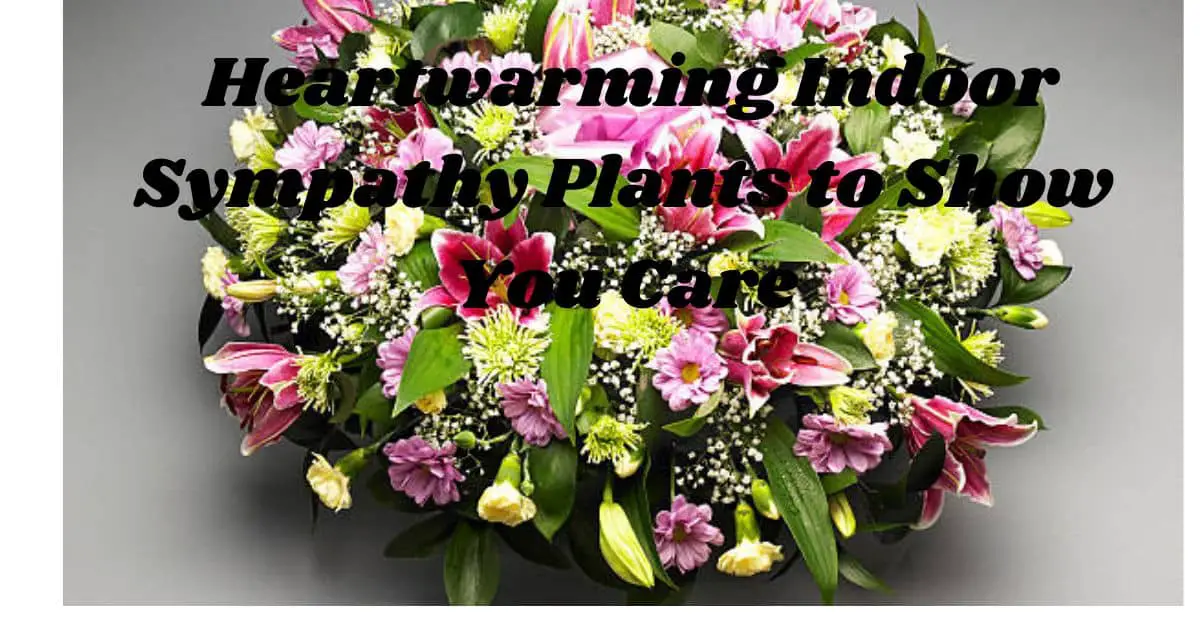Sending sympathy flowers has long been a thoughtful way to convey comfort and support, but indoor sympathy plants have grown in popularity for their lasting impact and beauty. Unlike bouquets that wilt, indoor plants can continue to bring peace and warmth to someone’s space, making them a perfect choice for expressing condolences. In this post, we’ll explore some of the most cherished indoor plants for sympathy gifts, each with its own special meaning and nurturing requirements. These plants don’t just decorate—they offer companionship, serenity, and healing.
Table of Contents
Why Choose Indoor Sympathy Plants?
Indoor sympathy plants have an enduring quality that flowers don’t. They’re a reminder that even during hard times, growth continues, and nature can provide comfort. Plants like peace lilies and orchids can bring peace to grieving hearts. They’re also practical—they can thrive indoors, require low maintenance, and offer a sense of purpose as they’re nurtured. Plus, their presence can contribute to improved air quality, creating a healthier, calming environment.
Let’s look at seven thoughtful indoor plants that make ideal sympathy gifts.
1. Peace Lily (Spathiphyllum) – The Symbol of Peace and Purity
The Peace Lily is a popular sympathy plant due to its serene white flowers and its easy-going nature. Known to symbolize peace and rebirth, this plant thrives in low-light conditions, making it ideal for indoor spaces. Its elegant appearance brings a touch of calm, while its air-purifying abilities make it beneficial to any room.
Real-Life Tip: I once gifted a peace lily to a friend who had lost a loved one. They later told me how tending to the plant became a small but meaningful routine that brought them comfort.
Care Tips:
- Light: Low to moderate indirect light
- Water: Water once a week, keeping soil slightly moist
- Pet Safety: Toxic to pets if ingested
2. Snake Plant (Sansevieria) – Strength and Resilience
Snake plants are incredibly resilient and nearly impossible to kill, symbolizing endurance and protection. They’re perfect for someone who may not have a green thumb but appreciates the strength and support these plants represent. Its vertical leaves are a visual reminder that strength can be both beautiful and steady.
Real-Life Tip: A close friend gifted me a snake plant when I moved to a new city. It was comforting to have something so steadfast with me, a reminder of their constant support.
Care Tips:
- Light: Tolerates low to bright indirect light
- Water: Water every 2–3 weeks, allowing the soil to dry out between waterings
- Pet Safety: Mildly toxic to pets
3. Orchid – Grace and Hope
Orchids have long been admired for their elegant flowers and long-lasting blooms. In times of loss, they represent resilience and grace. They’re also a bit more challenging to care for, making them an ideal gift for someone who finds solace in tending to plants.
Real-Life Tip: Orchids became my go-to sympathy plant because of their delicate yet enduring blooms. Friends and family often share how they find hope in the reblooming of their orchids.
Care Tips:
- Light: Bright indirect light
- Water: Water once a week by soaking the roots
- Pet Safety: Generally safe for pets
4. Philodendron – Affection and Growth
Philodendrons are lush, green, and easy to care for, symbolizing a comforting presence and slow, steady growth through hard times. With heart-shaped leaves, they also embody affection and warmth.
Real-Life Tip: I once gifted a philodendron to a family member in a difficult time. They shared that watching it grow was like witnessing a quiet reminder that things get better slowly, day by day.
Care Tips:
- Light: Moderate to bright indirect light
- Water: Water every 1–2 weeks
- Pet Safety: Toxic to pets
5. ZZ Plant (Zamioculcas zamiifolia) – Endurance and Patience
ZZ plants are known for their glossy leaves and impressive resilience, symbolizing endurance and patience. They’re perfect for someone who may not have the energy for extensive plant care, as they thrive on neglect.
Real-Life Tip: My ZZ plant was a gift from a friend during a challenging time in my life. Its low-maintenance nature felt like a reminder that I didn’t have to be perfect, just persistent.
Care Tips:
- Light: Tolerates low to bright indirect light
- Water: Water every 3–4 weeks
- Pet Safety: Toxic to pets
6. Aloe Vera – Healing and Comfort
Known for its healing properties, aloe vera is an ideal sympathy plant. This low-maintenance succulent symbolizes protection and healing, perfect for someone in need of calm and comfort.
Real-Life Tip: After a loss, my mother kept an aloe vera plant by her bedside. The ritual of tending to it—and sometimes using its gel for skincare—was like caring for herself in a gentle, symbolic way.
Care Tips:
- Light: Bright, indirect sunlight
- Water: Water every 2–3 weeks
- Pet Safety: Mildly toxic to pets
7. Jade Plant (Crassula ovata) – Prosperity and Longevity
The Jade Plant is a succulent with thick, coin-shaped leaves that signify prosperity and longevity. It’s an excellent choice to symbolize a lasting legacy, honoring a life well-lived.
Real-Life Tip: A friend’s jade plant, gifted to them during a period of mourning, has grown large over the years, becoming a living tribute to their loved one’s memory.
Care Tips:
- Light: Bright, indirect sunlight
- Water: Water every 2–3 weeks
- Pet Safety: Mildly toxic to pets
Choosing the Right Indoor Sympathy Plant
When selecting an indoor sympathy plant, consider the recipient’s lifestyle, home environment, and level of plant-care experience. Sympathy plants are most meaningful when they offer solace rather than stress. The gift of a living plant can be a powerful reminder of care and support that endures, helping loved ones find a sense of peace and growth in times of sadness.
Conclusion
Indoor sympathy plants bring comfort, growth, and a touch of nature’s healing powers into the homes of those grieving. A gift like this transcends traditional gestures, offering lasting companionship and a gentle reminder that life, in all its beauty and resilience, carries on.










